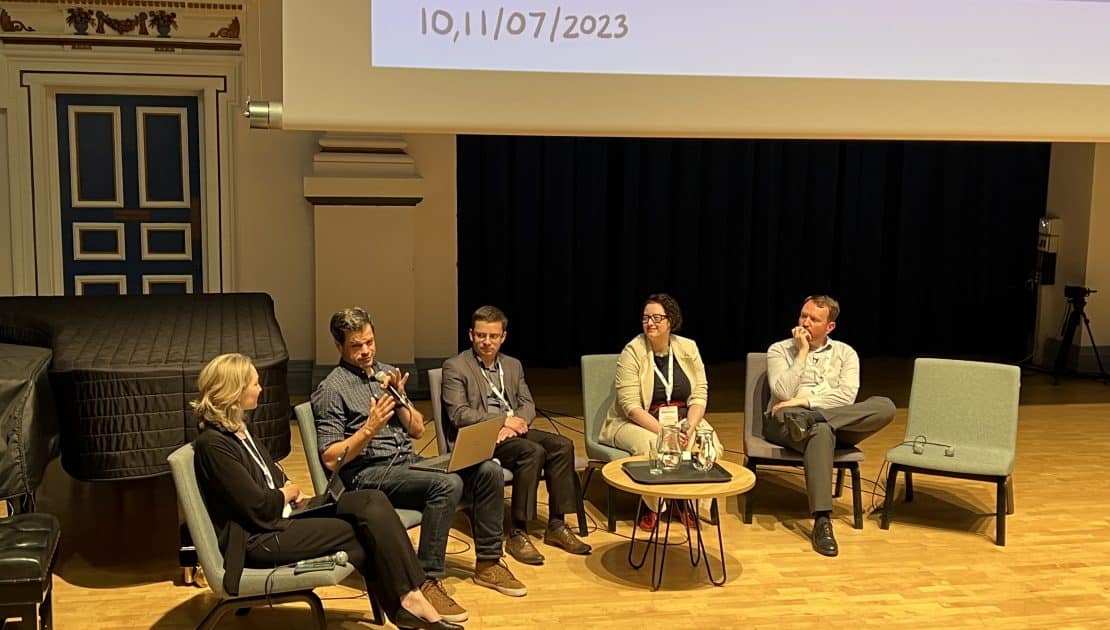Online Learning Summit, The University of Leeds

The Online Learning Summit held at the University of Leeds in July, 2023, brought together educators, researchers, and experts to discuss the challenges and opportunities in online education. The overarching theme of the summit was equitable access to education, with a focus on openness, collaboration, and redefining the curriculum to provide a new and meaningful student experience.
One of the key discussions revolved around the importance of equitable access to education. The summit emphasised the need to break down barriers and ensure that all learners, regardless of their background or circumstances, have equal opportunities to pursue education. The Knowledge Equity Network, a concept presented at the summit, highlighted the importance of radical collaboration and ensuring equal access to educational resources.
To achieve equitable access, the summit participants emphasised the need for dedicated spaces for collaboration. The University of Leeds showcased their innovative spaces, such as Helix and Nexus, which foster collaboration and enable students to connect with each other, content, and ideas. These spaces encourage students to actively engage in their learning and create a sense of community, both online and on-campus.
The summit also explored the concept of a new student experience, emphasising the importance of adopting new ways to teach online and on campus. Digital-first higher education was discussed as a way to leverage technology and provide students with a dynamic and interactive learning environment. The summit encouraged educators to embrace risk and try new approaches to teaching, highlighting the potential consequences of not adapting to the changing educational landscape.
A key performance indicator for online learning discussed at the summit was the continuation rate. This metric measures the percentage of students who continue their studies and complete their courses. The summit participants recognised the importance of providing ongoing support to online learners, such as regular meetings with mentors and consistent assessments. These practices contribute to student success and help maintain high continuation rates.
Throughout the summit, various problem-solving mindsets were explored, including systems thinking, design thinking, and futures thinking. Systems thinking allows educators to identify root causes and understand complex problems by examining the relationships and connections within the educational ecosystem. Design thinking provides a structured approach to generating innovative solutions, while futures thinking helps imagine multiple futures and create the desired outcome.
The summit also featured discussions on competency-based education, where two institutions were compared: Western Governors University (WGU) and the University of Nottingham. WGU, has been successfully implementing a fully online, self-paced, competency-based education model since 1997. The University of Nottingham is in the process of setting up a similar model in the UK. The session explored the design of the student and academic experience, relevance for industry, and the ability to offer accessible online learning at scale.
The importance of accessibility, usability, and inclusivity in online learning was another significant topic at the summit. The sessions highlighted the need to design online learning experiences that are accessible to all learners, ensuring diversity, equity, and inclusion. Testimonials and case studies emphasized the non-negotiable nature of accessibility and the impact it has on learners.
The summit concluded with sessions on the future of technology, artificial intelligence (AI), and the importance of multidisciplinary course design. Participants explored the transformative possibilities of AI in online learning and its potential to go beyond traditional applications. The sessions encouraged imaginative thinking and storytelling as tools to shape the future of AI in education.
The Online Learning Summit 23 at the University of Leeds provided a platform for educators, researchers, and experts to engage in meaningful conversations about the future of online education. The summit emphasised the importance of equitable access to education, openness, collaboration, and redefining the curriculum to create a new and meaningful student experience. By embracing innovative approaches and leveraging technology, universities can enhance student engagement, improve learning outcomes, and foster a more inclusive and transparent educational experience.
